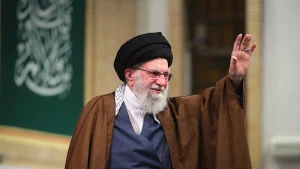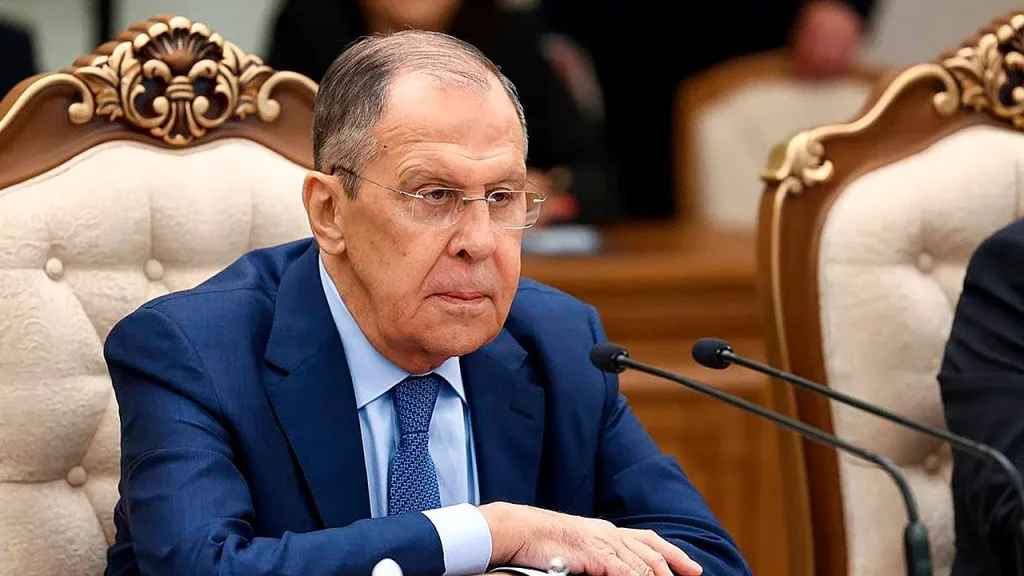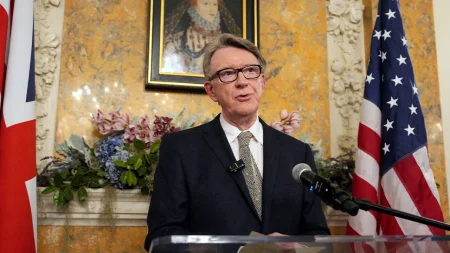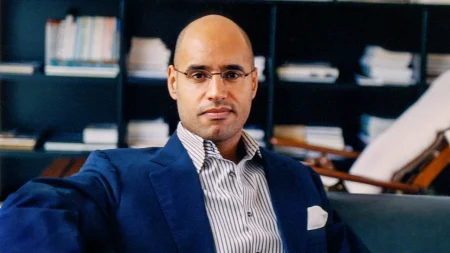Russia’s Lavrov Signals Diplomatic Openness Despite Ukraine War Tensions
In a gesture that suggests Russia’s willingness to maintain diplomatic channels with the United States even as the Ukraine conflict continues, Russian Foreign Minister Sergey Lavrov has expressed readiness for another face-to-face meeting with U.S. Secretary of State Marco Rubio. Speaking to Russian state news agency RIA Novosti, Lavrov emphasized the importance of regular communication between the two diplomats, particularly regarding Ukraine and bilateral matters. “Secretary of State Marco Rubio and I understand the need for regular communication,” Lavrov stated. “It is important for discussing the Ukrainian issue and promoting the bilateral agenda. That is why we communicate by telephone and are ready to hold face-to-face meetings when necessary.” This diplomatic overture comes at a critical time when tensions between the two nations have escalated following Russia’s test of what President Vladimir Putin described as a “nuclear-powered underwater torpedo,” which prompted the United States to cancel a planned Budapest summit between President Donald Trump and President Putin.
The diplomatic landscape between Russia and the United States has seen considerable activity since early 2022, with several significant meetings taking place between the nations’ top diplomats. In February, Rubio and Lavrov led delegations in Riyadh that agreed to restore normal diplomatic mission operations and establish technical teams to address specific issues. A follow-up meeting in Istanbul later that month focused on practical matters such as embassy access, staffing, banking services, and the restoration of direct air links between the two countries. The dialogue continued with a July meeting in Kuala Lumpur, where Rubio conveyed what he described as a “frank” message reflecting President Trump’s frustration with Russia’s inflexibility on the Ukraine issue. Most recently, during the UN General Assembly in New York in September, Rubio again urged Moscow to take “meaningful steps toward a durable resolution” of the conflict, according to State Department communications. This pattern of ongoing diplomatic engagement, despite serious geopolitical tensions, reflects both nations’ recognition of the need to maintain open channels of communication.
Against the backdrop of these diplomatic movements, Russia’s recent nuclear weapons test has introduced a new element of concern into the relationship. However, a Russian journalist speaking anonymously from Moscow suggested to Fox News Digital that the test should be interpreted as political signaling rather than a direct threat. “At the moment, Russia and the U.S. are trying to feel each other out in the diplomatic field. Nuclear test turmoil is a diplomatic lever and nothing more,” the journalist explained. This perspective frames the test as part of a broader negotiation strategy, with both Trump and Putin “trying to play Nixon’s ‘crazy president’ card to see who chickens first, also to test reaction.” Despite these diplomatic maneuvers, the journalist emphasized that the Kremlin remains committed to its objectives in Ukraine, planning to “play it at a steady pace until Ukraine crumbles or something else happens.” This suggests that while Russia is open to dialogue, it has not fundamentally altered its position regarding what it terms its “special military operation.”
Recent rumors suggesting Lavrov had fallen out of favor with the Kremlin after missing a major meeting have been firmly rejected by Russian officials. On November 7, the Kremlin dismissed such speculation, a point confirmed by the anonymous Moscow journalist who noted that “The Kremlin denied these rumors twice. And it says a lot that Lavrov is not in disgrace.” The journalist further explained the significance of this public denial, stating that “In Russia, usually officials in disgrace lose their position before it’s even become known to the public.” The fact that Lavrov has continued to publicly address various diplomatic issues indicates he remains firmly established in his role at the Foreign Ministry. This continuity in leadership is important for understanding Russia’s diplomatic strategy, as it suggests that despite tensions and challenges, the Kremlin is maintaining a consistent approach to its international relations, particularly with the United States.
In his recent communications, Lavrov has maintained Russia’s firm conditions for ending the war in Ukraine, reiterating positions that have remained largely unchanged throughout the conflict. According to Reuters, Lavrov stated that “No one questions the territorial integrity of Russia and the choice of the residents of Crimea, Donbas and Novorossiya,” territories that Russia claims as its own following contested referendums not recognized by most of the international community. Additionally, Lavrov indicated that Moscow is waiting for confirmation from the United States regarding the status of earlier “Anchorage agreements” concerning frozen Russian assets. These statements underscore Russia’s unwavering stance on what it considers non-negotiable aspects of any potential resolution to the conflict. Despite openness to diplomatic engagement, Russia appears unwilling to compromise on these core positions, creating a significant challenge for meaningful progress in negotiations.
The current state of U.S.-Russia relations reflects a complex balance between diplomatic engagement and fundamental disagreement on key issues, particularly regarding Ukraine. Lavrov’s offer to meet with Secretary Rubio signals Russia’s interest in maintaining diplomatic channels, even as Moscow refuses to modify its terms for ending the conflict. This tension between dialogue and intransigence characterizes the broader relationship between the two powers in the current geopolitical context. As both sides continue to engage diplomatically while simultaneously pursuing their respective strategic objectives, the path forward remains uncertain. What is clear, however, is that despite canceled summits, nuclear tests, and ongoing conflict, both Washington and Moscow recognize the necessity of keeping lines of communication open. Whether this diplomatic activity will ultimately lead to meaningful progress toward resolving the Ukraine conflict remains to be seen, but the willingness to continue dialogue, even in challenging circumstances, represents a potentially significant factor in the evolving relationship between these global powers.














